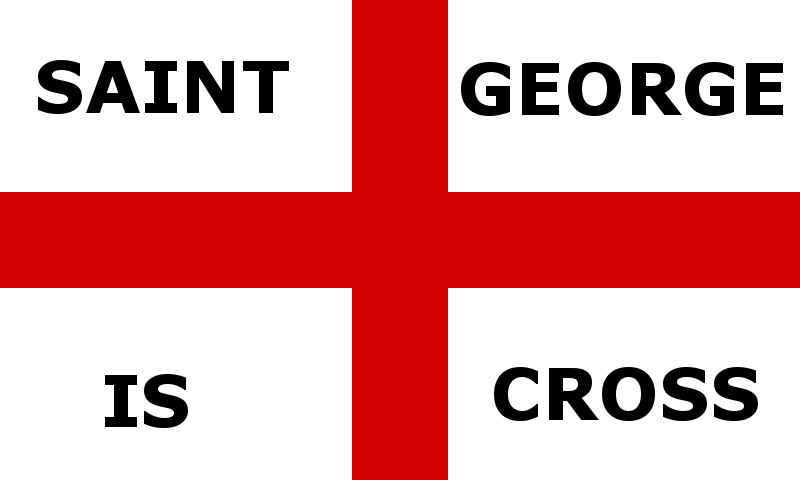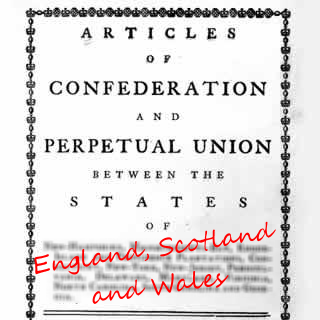So, I suppose it’s about time I blogged about the Scottish independence referendum as it’s been in the news for a week or so.
 Basically, this is the story so far:
Basically, this is the story so far:
Alex Salmond has been dicking about for a few years saying they’re going to hold a referendum on Scottish independence but keeps putting it off because a) they won’t vote for independence and b) the longer he threatens it, the more he can screw out of the Brits at our expense.
Salmond knows that the Scots won’t vote for independence so he’s come up with a great wheeze: devolution max. Devolution max is almost, but not quite, a confederation between Scotland and “Britain”. The Scottish government would be almost on a par with the British government, Salmond and Cameron would meet each other as equals rather than provincial administrator and imperial overlord.
Cameron got fed up with Salmond dicking about and told him he’s got to have his referendum sooner rather than later and he can’t offer devolution max, just a yes/no to independence. Salmond told the media London was dictating to Scotland; Cameron said he wasn’t dictating, he was merely telling the Scottish government what they can and can’t do in a dictatorial manner (I’ve paraphrased slightly).
At some point the British government decided that after years of indecision, an independence referendum held by the Scottish government would be illegal. Nobody has offered an opinion as to what they would do if Salmond held his referendum and ended up as Prime Minister of the Kingdom of Scotland – the thing about a unilateral declaration of independence is that it’s, well, unilateral. Salmond retaliated by saying he’d order the Scottish police not to man polling stations if the ballot papers didn’t have his options on them (yes, he can do that but technically the British Home Secretary trumps the Scottish First Minister which would make for an interesting pissing contest wouldn’t it?).
The brief posturing is over with no clear winner and now the two sides are setting out their stalls. The Brits are making the case for the union to the Scots, humming Rule Britannia whilst Britishly tearfully extolling the British virtues of the British union and good old British Britishness in British Britain and British Scotland. Some of them are suggesting wrecking manoeuvres such as giving people in England a vote on Scottish independence as well, although they seem to have gone quiet since Survation (an up-and-coming polling company with a very good record so far on political polls) found that more people in England want to see Scotland declare independence than Scots.
The Scottish nationalists are doing what they usually do – confusing England with “Britain”, throwing some random numbers on paper to show they’re subsidising England and … well, that’s about it but even so the Survation poll says that Salmond is quite comprehensively winning the “referendum war”.
Unsurprisingly and true to form for the Brits, virtually nobody is thinking about England in all this. The Labour MP for Torfaen in Wales, Paul Murphy, has called for the balkanisation of England by resurrecting Prescott’s rejected local government reorganisation with regional assemblies but that’s about as far as it goes. Other than that it’s been Scotland, Scotland, Scotland as if the future of the UK and the relationships between the member states in it are the exclusive domain of the Scots.
I don’t want a vote on Scottish independence because it’s Scotland’s business but if Scotland has a referendum then a referendum should also be held on English independence, Welsh independence and Northern Irish independence. If the union is to continue then it should be because most of the people in all four member states want it to, not because 4 million voters in Scotland say so.
I would love to hear the British nationalists making the case for the union to England like they are for Scotland. I would love to hear them explain why we should stay in a union where we have no voice, where £20bn of our taxes are taken from us on threat of imprisonment and given to the other three member states of the UK to spend on things that we can’t afford, where politicians elected in another country are allowed to introduce and vote on laws that only apply to England when they can’t even vote on the same things in the country they were elected in and where we are generally robbed, put upon and despised. I’d love to hear them make the case for that union because right now all I’m hearing is Scotland, Scotland, Scotland when quite frankly I couldn’t give a damn whether they stay or go.
The celtic dog has been wagging the English tail for too long and it has to stop. The British establishment is full of people who are, quite frankly, irrationally fanatical about Scotland. They are 5m people (and falling), we are 51m and increasing. They spend the money, we foot the bill. They have an inferiority complex, we have to make ourselves subservient to them to make them feel better. The obsession is with what the Scots want, forgetting that actually it’s England that would make or break the union.
So what’s the answer? It’s quite simple …
Hold the referendum in Scotland with the three options – independence, current level of devolution or “devolution max”. At the same time, hold a referendum in England, Wales and Northern Ireland offering the same choices (“current level of devolution” in England being what the Scots have now). This will result in an English Parliament being created. Take out the unconstitutional, unworkable English Votes on English Laws fudge (there’s no point trying to implement something that can’t work, it’s just wasting time and money) and support for devolution in England is overwhelming. This may result in assymetry as it’s not guaranteed that all four member states of the UK will vote for devolution max (I’m thinking of NI here) but it would be through choice, not because the British government is prejudiced against one country.
This raises the spectre of one or more member states of the UK voting for independence. Scotland is probably less likely to vote for independence than England despite the overt nationalism north of the border. Of the four member states of the UK, only England pays its own way and only England would thrive outside of the union. Despite the protestations of some Scots, they do extremely well out of the union whilst England does extremely badly out of it. If one or more member states vote for independence then the British government should be prepared with a firm plan for a British confederation. I won’t dwell on the virtues of a confederation, just follow the link.
The independence of one member state would raise some interesting challenges when it comes to the inheritance of treaties. For instance, who would keep the UK’s seat on the UN Security Council? If Scotland declared independence then “Britain” would probably still exist for a short time and once it fell apart, England would naturally be the successor state. But if England declared independence and Scotland didn’t, “Britain” wouldn’t last any longer but Scotland would naturally be the successor state. Salmond wants to demilitarise Scotland and on the international stage Scotland is a non-entity (“Scotland, isn’t that in England?” – you get the picture) – the UN isn’t going to have a bunch of whining skirt wearing with delusions of grandeur on the UN Security Council.
EU membership is another question that needs considering. Scotland is the most europhile member state of the UK, it would probably want to remain a member. The EU would want to keep England to pay the bills. New countries joining the EU have to agree to join the €uro – Scotland might not be too fussed about joining the €uro but England? It’s unthinkable.
What about the British Overseas Territories? Who will inherit those? If a confederation can successfully be created then problem solved. If not, it’s open for negotiation – they may opt for independence, they may choose their own “protector” to pay fealty to.
The Vienna Convention on Succession of States in Respect of Treaties says that it’s basically up to succeeding states to decide who takes on what treaties with the assumption that if no agreement is made, all the treaties currently in force will apply to all successor states. That means that the default position is that all member states of the UK declaring independence would remain members of the EU, UN, NATO and party to all the other treaties the UK has signed up to since 1978 unless they agree to divvy them up. Contrary to what British politicians say, independence of any of the member states of the UK does not necessarily mean losing the memberships of international bodies the UK currently holds.
None of the perceived problems are insurmountable so what reason is there for the union to continue? This is the case the British unionists have to make to all of us, not just the Scots and this is precisely what won’t happen. The British are so obsessed with what the Scots want that they won’t see what’s happening under their noses until it’s too late.





 Basically, this is the story so far:
Basically, this is the story so far: Scotland, Wales and Northern Ireland have negotiated a £30.2m bonus from the British government because the British government have spent money in London for the British Olympics. No extra money will be spent in the rest of England where local authorities are facing cuts of about a quarter over the next few years.
Scotland, Wales and Northern Ireland have negotiated a £30.2m bonus from the British government because the British government have spent money in London for the British Olympics. No extra money will be spent in the rest of England where local authorities are facing cuts of about a quarter over the next few years. I’ve just got back from a fortnight’s holiday – the first week was spent in Somerset and the second week in Ceredigion (or Cardiganshire as it used to be called). There was an abundance of English flags in Somerset (Burnham-on-Sea to be exact) but not to the exclusion of the British flag, just a lot more St George’s Crosses than the butchers apron. Wales was different though (at least the part of Wales we stayed in) – the only British flag I saw was, ironically, outside the Welsh Assembly building in Aberystwyth where it occupied one of the “other” flag poles to the side of the Welsh flag, the other “other” pole sporting the ring of stars logo of the EU.
I’ve just got back from a fortnight’s holiday – the first week was spent in Somerset and the second week in Ceredigion (or Cardiganshire as it used to be called). There was an abundance of English flags in Somerset (Burnham-on-Sea to be exact) but not to the exclusion of the British flag, just a lot more St George’s Crosses than the butchers apron. Wales was different though (at least the part of Wales we stayed in) – the only British flag I saw was, ironically, outside the Welsh Assembly building in Aberystwyth where it occupied one of the “other” flag poles to the side of the Welsh flag, the other “other” pole sporting the ring of stars logo of the EU.

 Technorati Tags:
Technorati Tags: 
 went live
went live  Smiling under the Buses is a Wrexham fan which means that I’m duty bound to loath and detest him and wish him a fiery eternity in the depths of Hades.
Smiling under the Buses is a Wrexham fan which means that I’m duty bound to loath and detest him and wish him a fiery eternity in the depths of Hades. Bore da.
Bore da. A passenger sevice between Ebbw Vale and Cardiff
A passenger sevice between Ebbw Vale and Cardiff 